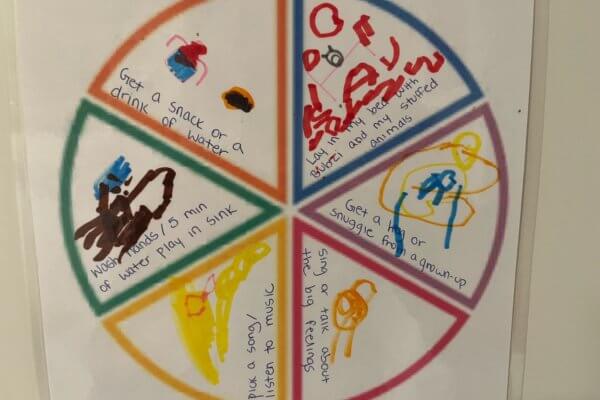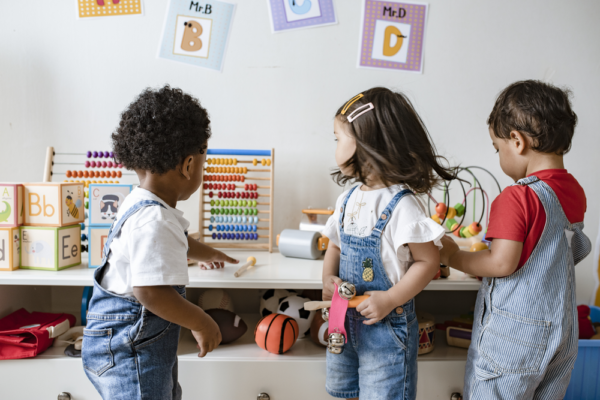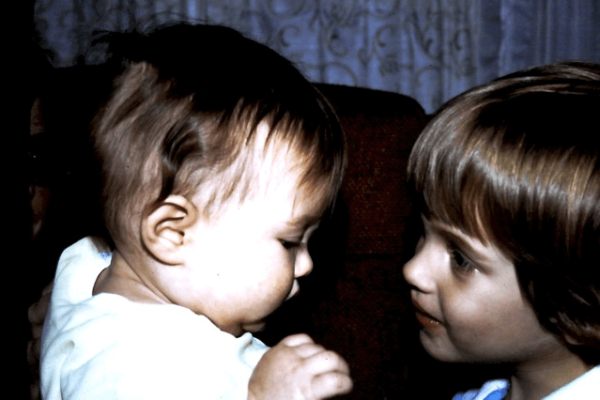Positive Discipline Parenting Blog
Sproutable's Positive Discipline blog.
Real tips. Real talk. Read & grow.
Latest post

3 tips for teaching kids to be a good sport
“That’s not fair” “You cheated!” “I never win!” Sound familiar? Most kids have a tough time navigating games where there is a clear winner, or when they feel a sense of unfairness. This is because[...]By Julietta Skoog
0 Views3 tips for teaching kids to be a good sport
“That’s not fair” “You cheated!” “I never win!” Sound familiar? Most kids have a tough time navigating games where there is a clear winner, or when they feel a sense of unfairness. This is because they are still learning! Getting comfortable with losing, being flexible with not going first or getting the color game piece they want, and having patience taking turns all takes LOTS of practice. It is still cognitively challenging for young children to see “fairness” because they are still growing into their capacity for perspective taking, which is why it is important to start now!By Julietta Skoog
ViewsGetting comfortable with messy play
I’ve been working with kids for over 15 years, and I’ve cleaned up a fair share of messes in that time. I wasn’t someone who initially leaned into messy play because it can be gross, stressful, overwhelming, and because I could always come up with something else that’s fun to do instead. However, the longer I’ve been doing this, the more I’ve gotten not only comfortable, but actually have started enjoying, inviting, celebrating, and really leaning into messy play time! Here’s my why, my how, and some tips I’ve learned along the way.By Danielle Taylor
ViewsTeaching kids how to manage anger
One thing I adore about Positive Discipline is how much time and effort is spent on teaching children how to recognize and handle their emotions. It is so powerful to teach that all feelings are valid (though their actions because of those feelings may not be)! What a relief for a child to know that it’s okay to be angry, and that it will pass. Anger doesn’t feel good, but knowing that it’s both normal and temporary sure helps. Here's how to make and use an anger wheel of choice with your nanny kids.By Danielle Taylor
Views5 summer ideas for nanny kiddos
Summer is fun, exciting, and a wonderful change of pace (especially here in rainy Seattle!), but it also means that the routines we’ve counted on and been polishing all school-year are about to change. For many families, nannies, and kiddos, summer means travel, playdates, and sunshine. How can we as nannies set ourselves, our charges, and our families up for a great summer?By Danielle Taylor
ViewsHow do I teach kids to share?
It is completely unrealistic, developmentally, to expect young children to share. What you CAN teach them, explicitly is what it means to share (usually taking turns) and the skills they need to be practicing mutually respectful sharing.By Julietta Skoog
ViewsSiblings: Get them in the ring
The most popular night of my seven-week Positive Discipline parenting series is the night we finally get to talk about siblings. From the first week, this is a source of angst for parents. It is on every list of challenges that we make, and usually the sibling fighting is a trigger that brings out the “Final straw! I’ve had it, that’s it!” moment in the night where we turn into the version of our parents we swore we would never become. It takes a full six weeks of building on parenting tools before we can get to this meaty and layered challenge. In this class, I always start by asking that same question, “what did you learn from your siblings?” After some scoffing, the answers range from:By Julietta Skoog
ViewsWant to Raise Happy Kids? Teach Gratitude.
Ask any parent what they want for their children and they will likely say, “I just want her to be happy.” It is what we strive for within our own lives, and what we anguish over for our children. It guides education decisions, discipline, and even shopping. Lately there has been a surge of books, documentaries, and research that lay out the “guide” to happiness, with a common theme arising again and again: gratitude.By Julietta Skoog
Views







